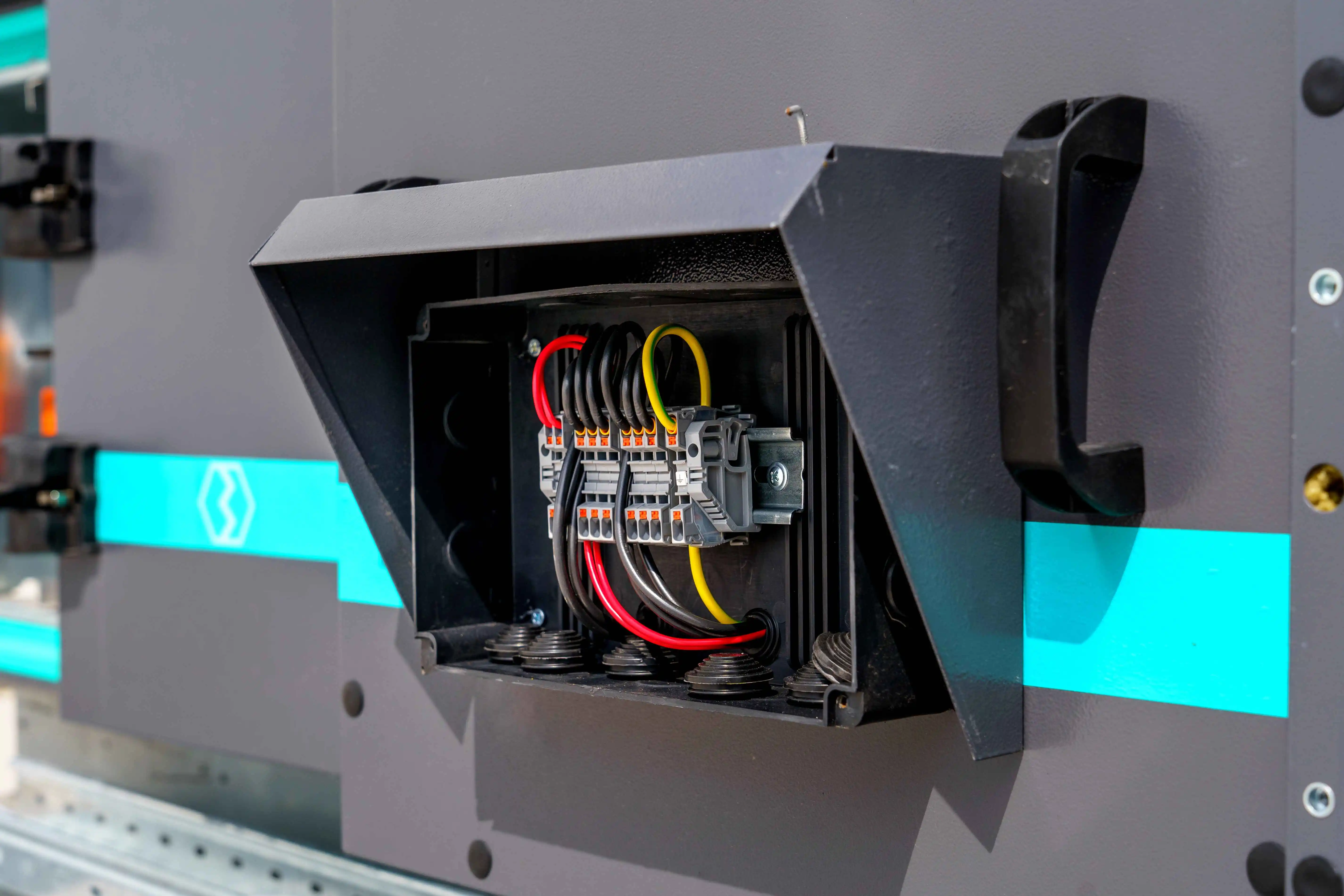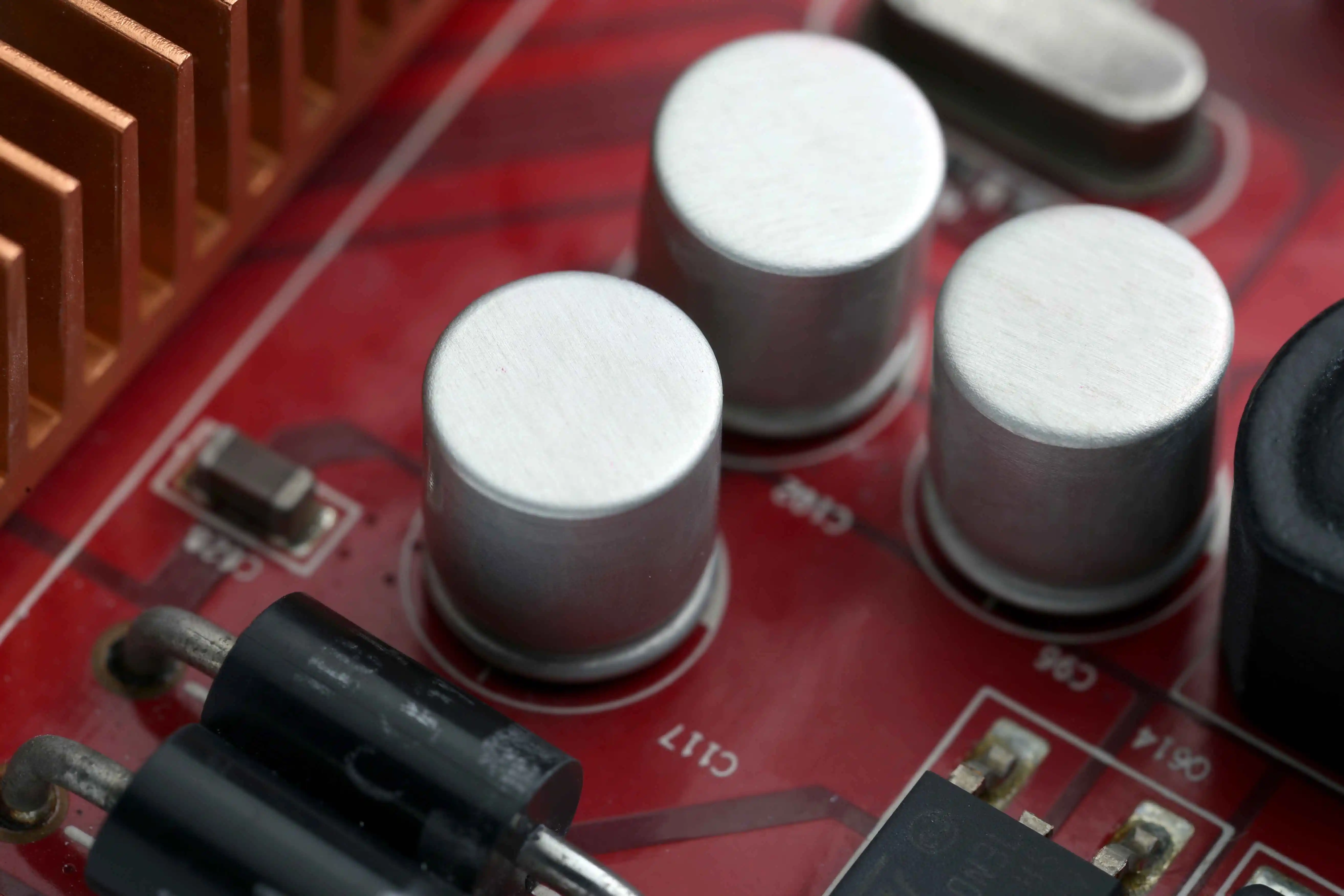Electrical systems are integral to our everyday lives. They power our homes, fuel our businesses, and are a critical component in various industries. This essay will explore the different types of electric systems, a thing that encapsulates the vast and diverse range of systems that exist today.
Electric systems have transformed over time, evolving to meet the increasing demands of the modern world. At the heart of this evolution lies the various types of electric systems. Each system type has its unique characteristics, advantages, and applications. We will delve into the details of these types, providing a comprehensive overview of the fascinating world of electric systems.
Types of electric systems is a broad one, covering everything from the simple electrical circuits in our homes to the complex systems powering large-scale industrial operations. The diversity and scale of these systems are truly awe-inspiring, reflecting the power and potential of electrical engineering.
Direct Current (DC) Systems
As we delve into the world of electric systems, one of the primary types of electric systems we encounter is the Direct Current (DC) system. These systems, often deemed the ‘Pioneers of Power,’ have a rich history and a significant role in the evolution of electric systems.
Direct Current (DC) is a type of electric system where the electric charge, or current, flows in one direction. In the context of the ‘types of electric systems,’ DC systems represent a fundamental and simple form of power transmission. The historical significance of DC systems stems from their pioneering role in the early days of electricity.
The DC electric system was the first type of electric system to be used for power transmission. Its adoption marked a turning point in the history of electric systems, paving the way for the widespread use of electricity in various applications. Despite the eventual domination of Alternating Current (AC) systems, DC systems remain crucial in various applications, especially where a stable and unidirectional current is required.
In terms of the technicalities, DC systems are characterized by a constant voltage level and the unidirectional flow of current. This makes them ideal for applications like battery-operated devices, electric vehicles, and certain types of renewable energy systems. Thus, DC systems occupy a significant spot in our exploration of the types of electric systems.
The evolution of DC systems is a fascinating tale of innovation and adaptation. Despite the dominance of AC systems in power grids, DC systems have found new life in modern applications like data centers, where they offer efficiency advantages. As we delve deeper into the types of electric systems, the resilience and relevance of DC systems in the face of technological advancements become increasingly evident.
In the grand scheme of electric systems, DC systems represent a fundamental building block. Their simplicity, ease of design, and the ability to provide a constant voltage level make them an essential part of the types of electric systems. Their relevance in modern applications underlines the enduring importance of DC systems in the world of electricity.
As we continue our exploration of the types of electric systems, it’s essential to appreciate the pioneering role of DC systems. They stand as a testament to the enduring relevance of simple, elegant solutions in a world of increasing complexity. Despite the advances in technology and the emergence of newer types of electric systems, the DC system continues to hold its ground, powering a multitude of devices and systems in our modern world.
Discover the Key Electric System Components
Alternating Current (AC) Systems
As we explore the different Types of Electric Systems, we arrive at the Alternating Current (AC) systems, a pivotal component in our modern life. AC systems have revolutionized the way we generate, transmit and utilize electricity, making them a cornerstone in our exploration of electric systems.
AC systems, in contrast to Direct Current (DC) systems, operate by periodically reversing the direction of electric charge. This unique characteristic of AC systems offers a distinct advantage in long-distance power transmission, making it the dominant type among the various types of electric systems for power grids globally.
The term ‘Alternating Current’ refers to the way the electric charge in these systems oscillates, or alternates, between two directions. This alternating pattern allows AC systems to efficiently transmit electric power over long distances with minimal loss, a factor that has contributed significantly to their widespread adoption in power grids.
Understanding the role of AC systems in the broader context of Types of Electric Systems is essential for anyone interested in the field of electrical engineering. AC systems power our homes, fuel our industries, and are integral to the functioning of our modern society. They are a testament to the power of innovation and the potential of electrical engineering.
The advantages of AC systems extend beyond efficient power transmission. They are also compatible with various types of electric generators, including renewable energy sources like wind turbines and hydroelectric power plants. This compatibility makes AC systems a crucial player in the push towards sustainable and renewable energy sources, further cementing their place in the diverse range of types of electric systems.
In the world of Types of Electric Systems, AC systems represent a sophisticated and efficient solution for power generation and transmission. They stand as a testament to the power of innovation and the potential of electrical engineering. As we continue our exploration of electric systems, the importance of AC systems in our everyday lives and their role in shaping our future becomes increasingly evident.
As we delve into the intricacies of AC systems, we get a glimpse of the complexities and capabilities of the different types of electric systems. From powering our homes to fueling large-scale industries, AC systems play a pivotal role in our modern society. Understanding these systems is not just about appreciating the technology behind them, but also about recognizing their impact on our lives and our future.
In conclusion, Alternating Current (AC) systems are an integral part of the diverse Types of Electric Systems that power our world. Their efficiency, versatility, and compatibility with renewable energy sources make them a fundamental component of our modern electrical infrastructure. As we continue to explore the fascinating world of electric systems, the role of AC systems in powering our lives and shaping our future remains a central theme.
Discover the Key to Electric Systems: A Complete Guide

Discover the Differences: Electric Systems vs Electronics
Single-phase Electric Systems
As we continue our exploration of the diverse Types of Electric Systems, we uncover another crucial component – the Single-phase Electric Systems. These systems embody simplicity while effectively taking action to power our everyday lives.
Single-phase electric systems are one of the simplest types of electric systems, but their impact on our daily life is anything but minimal. They are predominantly used in residential and commercial settings where the power requirements are relatively lower compared to industrial applications. The beauty of single-phase electric systems lies in their simplicity and efficiency, making them an integral part of our exploration into the different types of electric systems.
In a single-phase electric system, power is delivered through a single conductor or phase. This simplicity makes these systems cost-effective and easy to install, contributing to their widespread use in homes and small businesses. Despite their simplicity, single-phase electric systems play a crucial role in powering up a wide range of electrical appliances, from lighting systems to kitchen appliances.
Understanding the role of single-phase electric systems within the broader context of Types of Electric Systems is crucial. These systems exemplify how even the most straightforward solutions can power our modern world effectively. They highlight the essence of electrical engineering – creating efficient solutions to meet our everyday needs.
The single-phase electric systems, despite their simplicity, are incredibly versatile. They can be found in various applications, from powering household appliances to serving as the backbone for small-scale commercial operations. This versatility underlines the importance of single-phase electric systems in the diverse range of types of electric systems.
In the grand narrative of Types of Electric Systems, single-phase electric systems represent simplicity in action. They are a testament to the power of simple, efficient solutions in addressing our everyday power needs. As we delve deeper into the various types of electric systems, the role of single-phase electric systems in powering our homes and businesses becomes increasingly evident.
In conclusion, single-phase electric systems are an integral part of the broader Types of Electric Systems landscape. They stand as a testament to the power of simplicity, providing efficient and cost-effective solutions to our everyday power needs. As we continue our journey through the diverse world of electric systems, the role of single-phase electric systems remains central to our understanding.
Comprehensive Guide to Electric System Maintenance
Al Sabah’s Electric Systems in Solar-Powered Installations
As we continue to delve into the Types of Electric Systems, a significant player emerges in the field of off-grid solutions: Al Sabah‘s Electric Systems. These systems, specifically designed for solar-powered installations, are revolutionizing the world of electrical engineering and lighting design. They represent a sustainable and innovative approach to powering homes and businesses, particularly those located off the traditional power grid.
Al Sabah’s Electric Systems have been instrumental in harnessing the power of the sun, transforming it into usable electricity for various applications. These systems fall under the broader category of Types of Electric Systems, highlighting the diversity and innovation within this field. They are a testament to the potential of electrical engineering to provide sustainable and efficient power solutions.
When it comes to indoor lighting design, Al Sabah’s Electric Systems play a significant role. The utilization of solar power for indoor lighting represents a sustainable and cost-effective solution, especially in off-grid locations. These systems allow for the efficient use of natural resources, reducing dependency on traditional power sources, and promoting sustainability.
Understanding the role of Al Sabah’s Electric Systems within the broader context of Types of Electric Systems is essential. These systems offer a unique blend of sustainability and innovation, harnessing the power of the sun to light up homes and businesses. They represent a significant stride in electrical engineering, pushing the boundaries of what’s possible with off-grid power solutions.
The integration of Al Sabah’s Electric Systems in solar-powered installations has revolutionized indoor lighting design. These systems allow for the optimal use of sunlight, transforming it into usable electricity for lighting up interiors. This not only promotes energy efficiency but also contributes to a more sustainable and eco-friendly indoor environment.
Al Sabah’s Electric Systems have demonstrated the potential of solar power in the realm of Types of Electric Systems. These systems are a testament to the power of innovation and the potential of renewable energy sources in powering our world. They reflect the dynamic nature of electrical engineering, constantly evolving to meet the changing needs and challenges of our modern society.
In conclusion, Al Sabah’s Electric Systems represent a significant development in the Types of Electric Systems, particularly in the field of solar-powered installations. They have proven to be a game-changer in indoor lighting design, offering a sustainable and efficient solution for off-grid locations. As we continue to explore the diverse world of electric systems, the role of Al Sabah’s Electric Systems in empowering off-grid solutions remains a central theme.





